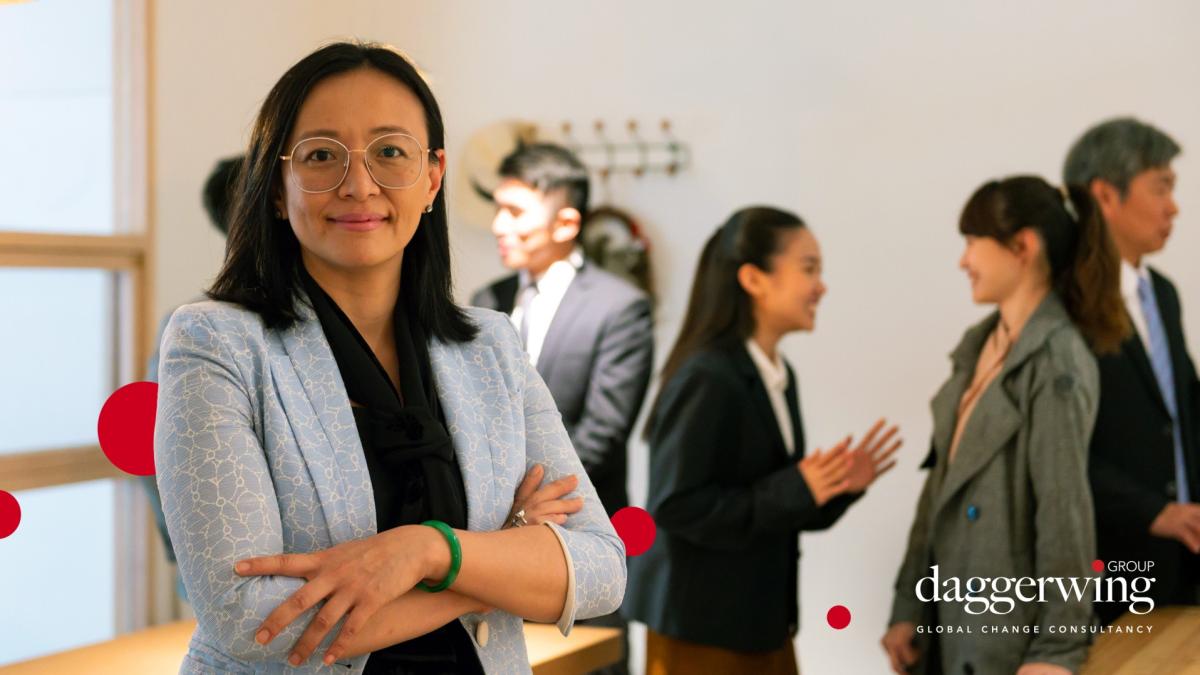
Change management success or failure depends on one thing: people
Global consultancy Daggerwing Group unveils why change fails and how they help organisations do change right
When companies undergo business change or transformations – from mergers and acquisitions to new operating models, ways of working, and culture transformations – they tend to focus on changing strategies, technologies, processes and structures, leaving the people agenda as an afterthought. This is why change often fails.
Daggerwing Group, a Top-10 rated global change consultancy established in 1999, takes a different approach. They help their clients break the cycle of change management failure by doing change right the first time by helping leaders focus on people – the hardest part of change management – to make change happen and make it last.
Ning Wong, Principal at Daggerwing Group in APAC, says the consultancy has extensive experience working with leaders at Fortune 500 companies around the world such as Pfizer, HPE, Takeda, PepsiCo, Nissan, and Nestlé. After carefully studying the factors undermining change success at each organisation, Ning says change failure can be attributed to two things: human nature and a lack of understanding about why people do and do not want to change.
“It is human nature to resist change—even when it is good for the business, the customers, and the careers of individual employees. Leaders who do not have a good grasp of why their people do and do not want to change, and who cannot leverage those insights to create and implement a strategy to make change happen and stick, may see their transformation ambitions evaporate,” Ning added.
Although these issues are challenging, Daggerwing Group helps businesses face them head-on by looking through the lens of the “8 Reasons Why Change Fails” for all their engagements. These include:
- An urgent reason to change is not communicated
- A compelling vision for the future has not been articulated
- Lack of feeling of ownership among key employees
- Common biases are not surfaced or addressed
- Leaders do not drive the change
- Organizational systems and other initiatives are not aligned with the change
- People are not enabled or encouraged to develop new skills and behaviours
- The mass does not embrace change or goes against culture
According to Daggerwing, whether an organisation’s CEO is laying out a new corporate strategy, or announcing new behaviours to support the culture transformation, having a clear picture of what the future looks like – and how it impacts employees’ day-to-day – is key. Without the articulation of a clear vision, employees’ first instinct may be to resist the change – putting the change or transformation at risk.
Daggerwing avoids this situation, and attributes much of their success to their deep understanding of the wide-reaching effect of common biases, thoughts, and perceptions that drive human behaviour. They know how creative, human-centred solutions can impact what people think, feel, and do.
“Take two common human traits for example: not wanting to change (status quo bias) and not wanting to lose something (loss aversion bias). It's natural for people to want to stick with what they know. And we often see people fighting to avoid ‘perceived’ losses, rather than trying something new and acquiring equivalent or better gains. Through encountering these types of biases in our work, we know how leaders can avoid them and get their people on board with the change,” Ning states.
But Daggerwing also knows that change starts at the top. If leaders do not feel accountable for driving the change forward, or if every member of the C-Suite has a different view on what change looks like, it can fail.
“We usually start our engagements with executive alignment on vision and roll out. We facilitate rapid identification of the desired state in detail – as well as the gaps to address and the elements of the phased action plan to make it happen. We then use engaging approaches to get leaders to confidently align on what success looks like and when it will happen,” says Ning.
However, it does not stop there. “To do change right the first time, and sustain the change in the future, it is also about engaging the stakeholders, equipping and empowering people leaders and managers with the tools for success, identifying ownership among key employee groups, and setting up governance to ensure clear accountability and structure to drive the change forward,” Ning continues.
With their people-first and psychology-based approach, Daggerwing is uniquely equipped to help leaders overcome their transformation challenges. They work with a broad range of sectors and industries including consumer packaged goods, healthcare and pharma, manufacturing, aerospace, technology and more – offering their clients an array of services that deliver tangible, lasting change, and successful outcomes.
“Whether we’re working with a client on digital transformation or helping to win the war on talent, we create a custom-fit approach that meets our client’s needs. We do not see any transformation journey as being linear,” says Ning. “There should always be pivots, revisits, and reiterations in any change program. That’s how we do change right the first time,” she continues.
And it shows. Over their 21-year history, Daggerwing Group has solidified their place as a leading global change consultancy, including working with APAC based clients such as X-Inc, FedEx, Collins Aerospace, and Pratt and Whitney.
























 Advertise
Advertise









